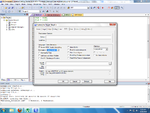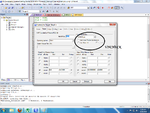jjeevan007
Full Member level 5
hi to all,
i have download the evaluation keil uvision 4 for mdk-arm compiler.
but its not creating the proper hex. i mean i written the code for io toggle which works in simulation but not in hardware. my hardware is working fine.
can anyone tell me why the keil uvision 4 is not creating the properly.
regards
jeevan
i have download the evaluation keil uvision 4 for mdk-arm compiler.
but its not creating the proper hex. i mean i written the code for io toggle which works in simulation but not in hardware. my hardware is working fine.
can anyone tell me why the keil uvision 4 is not creating the properly.
regards
jeevan


